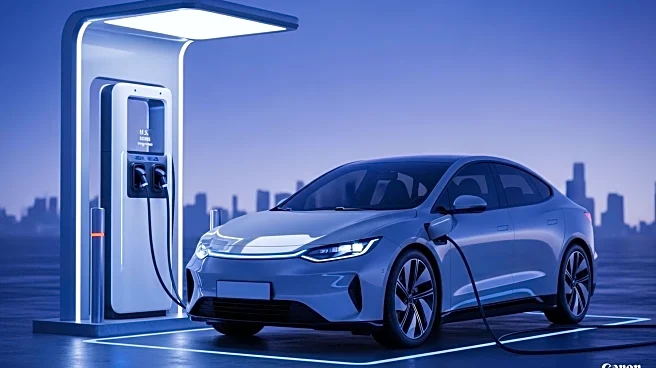What's Happening?
Volkswagen Group of America has announced a significant growth in its Audi division's electric vehicle (EV) sales, with a 232% increase in the third quarter of 2025 compared to the same period in 2024. This surge has resulted in EVs comprising 39% of Audi's total sales in the U.S. during this quarter. The Audi Q6 e-tron emerged as the top seller, surpassing its internal combustion engine counterpart, the Q5. Other models contributing to this growth include the Audi A6 Sportback e-tron, Audi Q4 e-tron, and Audi e-tron GT. This development comes amidst leadership changes within the Volkswagen Group, which may influence future strategies.
Why It's Important?
The substantial increase in Audi's EV sales highlights a growing consumer shift towards electric vehicles in the U.S. market. This trend is crucial for the automotive industry as it adapts to changing consumer preferences and environmental regulations. Audi's success could encourage other automakers to accelerate their EV offerings, potentially leading to increased competition and innovation in the sector. The rise in EV sales also suggests a positive reception to Audi's electric models, which could bolster the brand's market position and influence future product development strategies.
What's Next?
Audi's challenge will be to maintain this momentum and further expand its EV market share. With the expiration of the EV tax credit, Audi will need to leverage word-of-mouth marketing and customer satisfaction to drive future sales. The company may also explore new incentives or financing options to attract more buyers. Additionally, Audi's leadership changes within the Volkswagen Group could lead to strategic shifts that impact its approach to the EV market.
Beyond the Headlines
The growth in Audi's EV sales may have broader implications for the automotive industry, including potential shifts in manufacturing priorities and supply chain adjustments to accommodate increased demand for electric vehicles. This trend could also influence public policy, as governments may consider additional incentives or infrastructure investments to support the growing EV market.










